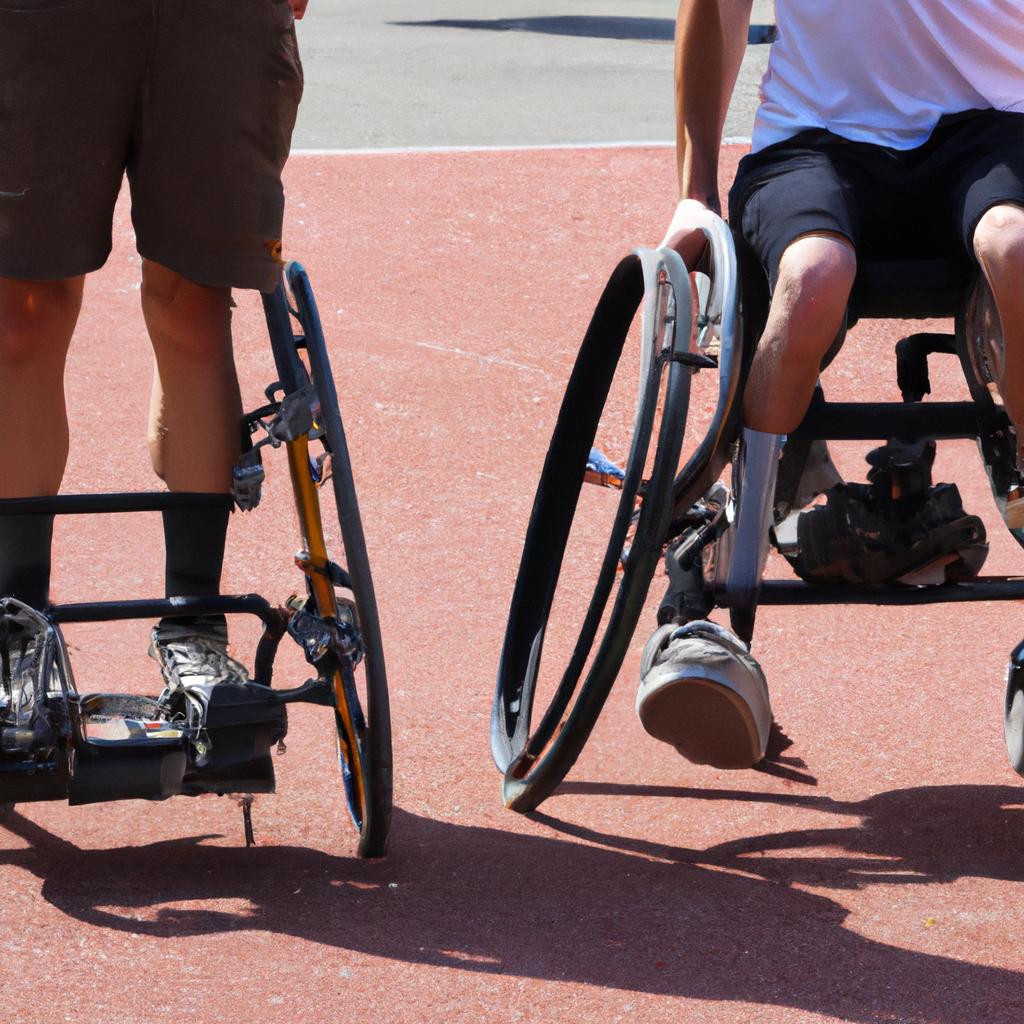**”The Role of Adaptive Sports in Enhancing Social Skills and Teamwork Among Individuals with Disabilities”**
The Role of Adaptive Sports in Enhancing Social Skills and Teamwork Among Individuals with Disabilities
Adaptive sports enhance social skills and teamwork among individuals with disabilities. These activities promote physical well-being and foster social interaction. Individuals with disabilities often face barriers that hinder connections with peers. Adaptive sports create a platform for engagement, friendship, and improved communication skills in a supportive environment.
Understanding Adaptive Sports
Adaptive sports modify physical activities for individuals with varying abilities. Examples include wheelchair basketball, adaptive rowing, and sitting volleyball. Each sport adapts traditional rules and equipment for different disabilities. Participants enjoy competition and camaraderie in an inclusive setting, promoting belonging and acceptance.
Adaptive sports also emphasize teamwork and social engagement. Participants develop athletic abilities while cultivating essential life skills. The social dynamics within adaptive sports teams allow individuals to connect with others, fostering mutual understanding and support.
The Social Benefits of Adaptive Sports
Adaptive sports create unique environments for social interaction. Sports teams require cooperation, communication, and collaboration. Participants practice essential social skills within structured settings. Many individuals with disabilities struggle to connect due to social barriers. Shared experiences in adaptive sports foster camaraderie and lasting friendships.
Furthermore, adaptive sports involve teamwork, teaching individuals the importance of unity and trust. Team members rely on each other to achieve common goals. This support network helps individuals develop social confidence while celebrating successes and navigating challenges together. Adaptive sports serve as catalysts for social engagement, offering opportunities to forge meaningful connections.
Building Communication Skills
Effective communication plays a vital role in teamwork and social interactions. Adaptive sports encourage open dialogue among team members. Participants learn to express needs, preferences, and opinions, enhancing overall communication skills. This practice translates into everyday life, helping individuals feel comfortable in various social settings, including school, work, and the community.
Additionally, adaptive sports often include diverse groups of participants. These groups feature individuals with different backgrounds, abilities, and communication styles. This diversity exposes individuals to various perspectives and interaction approaches. Participants enhance adaptability and interpersonal skills, learning to navigate social dynamics with greater ease and confidence.
Improving Teamwork Skills
Adaptive sports emphasize teamwork and collaboration. Team members work together towards common goals, teaching individuals the importance of unity and interdependence. Participants appreciate their teammates’ strengths and contributions, fostering cooperation and mutual respect. Consequently, they become effective team players on and off the field.
Conclusion
Adaptive sports significantly enhance social skills and teamwork among individuals with disabilities. They create opportunities for connection, communication, and collaboration.
Below are related products to the topic if you’re interested:
FAQ
What are adaptive sports?
Adaptive sports are modified physical activities designed for individuals with varying abilities. They include sports like wheelchair basketball, adaptive rowing, and sitting volleyball, which adapt traditional rules and equipment to accommodate different disabilities. These activities promote competition and camaraderie in an inclusive environment.
How do adaptive sports help improve social skills?
Adaptive sports foster social interaction by creating structured environments where participants can practice essential social skills, such as cooperation, communication, and collaboration. Through shared experiences and teamwork, individuals with disabilities develop friendships and build confidence in their social abilities.
What are the teamwork benefits of participating in adaptive sports?
Participating in adaptive sports emphasizes the importance of teamwork and collaboration. Team members work together towards common goals, learning to appreciate each other’s strengths and contributions. This experience fosters mutual respect, cooperation, and the skills needed to be effective team players both on and off the field.















Post Comment